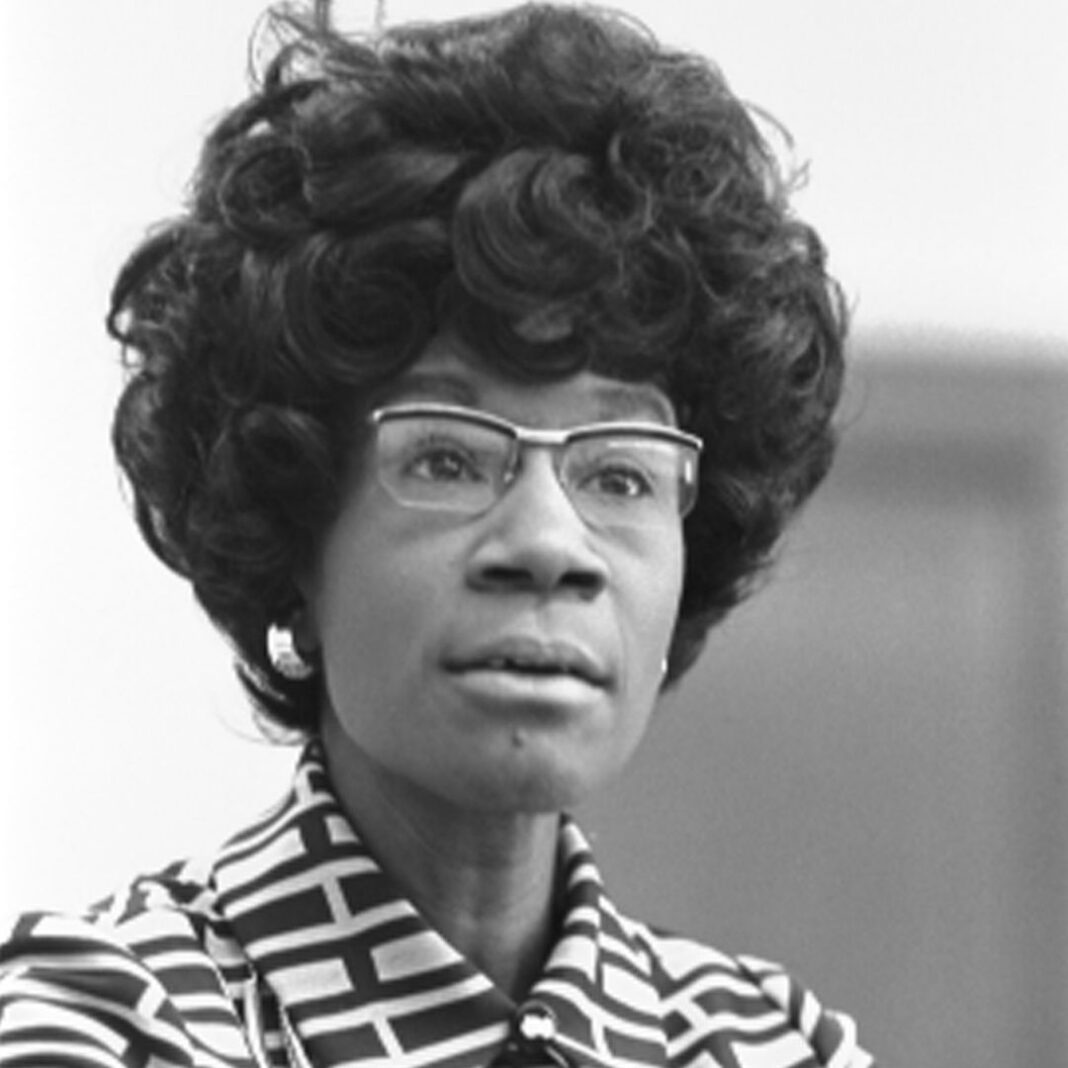Shirley Anita Chisholm was the first African American woman in Congress and the first woman and African American to seek the nomination for president of the United States from one of the two major political parties.
Her motto and title of her autobiography—Unbought and Unbossed—illustrates her outspoken advocacy for women and minorities during her seven terms in the U.S. House of Representatives.
Article Content
Early Life
Born in Brooklyn, New York, on November 30, 1924, Chisholm was the oldest of four daughters to immigrant parents Charles St. Hill, a factory worker from Guyana, and Ruby Seale St. Hill, a seamstress from Barbados.
Education
She graduated from Brooklyn Girls’ High in 1942 and from Brooklyn College cum laude in 1946, where she won prizes on the debate team. When professors encouraged her to consider a political career, she replied that she faced a “double handicap” as both Black and female.
Career
By 1960, she became a consultant to the New York City Division of DayCare.
In 1964, Chisholm ran for and became the second African American in the New York State Legislature.
In 1968, after a court-ordered redistricting created a new, heavily Democratic, district in her neighbourhood, Chisholm sought and won a seat in Congress.
There, “Fighting Shirley” introduced more than 50 pieces of legislation and championed racial and gender equality, the plight of the poor, and ending the Vietnam War.
She was a co-founder of the National Women’s Political Caucus in 1971, and in 1977 became the first Black woman and second woman ever to serve on the powerful House Rules Committee.
Chisholm also changed the nation’s perception about the capabilities of women and Black Americans.
A New York City educator and child care manager, Chisholm saw the problems of the poor every day, and in the 1950s this led her to run for and win a seat in the New York State Legislature.
She advocated for the end of the military draft and reduced defence spending.
She served in Congress until 1982 and in 1972 entered several Democratic presidential primaries, receiving 151 delegate votes for the presidential nomination.
Discrimination followed Chisholm’s quest for the 1972 Democratic Party presidential nomination. She was blocked from participating in televised primary debates, and after taking legal action, was permitted to make just one speech.
Chisholm retired from Congress in 1983. In 1991 she moved to Florida and later declined the nomination to become U.S. Ambassador to Jamaica due to ill health.
Of her legacy, Chisholm said, “I want to be remembered as a woman … who dared to be a catalyst of change.“
Death
Shirley Chisholm died on January 1st, 2005.
In 2005, Shirley Chisholm ’72: Unbought and Unbossed, a documentary film aired on U.S public television. It chronicled the 1972 bid for the Democratic presidential nomination. The film was featured at the Sundance Film Festival.
The Shirley Chisholm Project on Brooklyn Women’s Activism was established to promote research and preserve the legacy of the activist. The project is housed at Brooklyn College. In 2018, a state park was dedicated in her honour along part of the Jamaica Bay coastline.
Chisholm was posthumously awarded the Presidential Medal of Freedom in 2015.
Read Also: Biography of Mary Church Terrell


